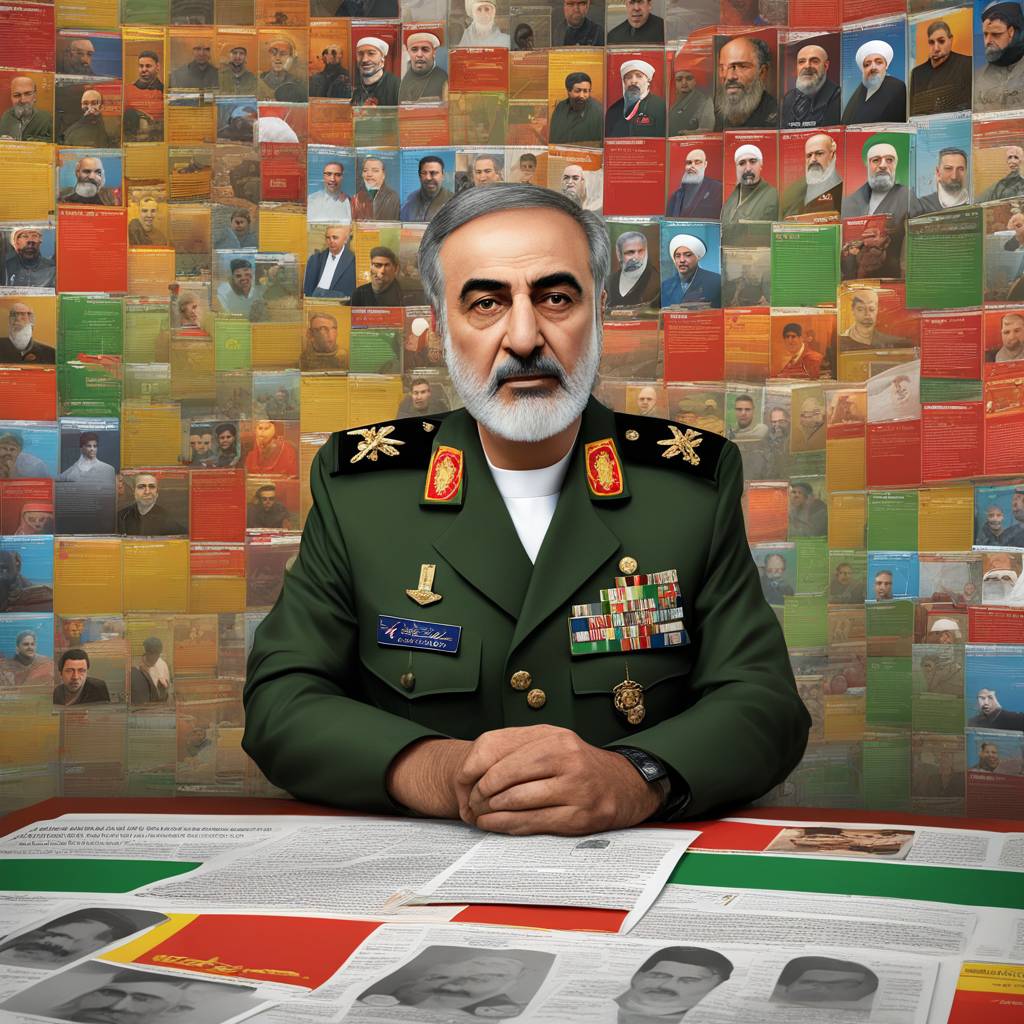An Israeli airstrike in Damascus, Syria has killed Mohammad Reza Zahedi, a senior commander in Iran’s Revolutionary Guards Corps, along with several Iranian diplomats. Zahedi was sanctioned by the U.S. Treasury Department in 2010 for his key role in Iran’s support of Hezbollah. The building in which the Iranian consulate was located was flattened in the attack, with smoke rising from the rubble. Israel has not confirmed its involvement, with an Israeli military spokesperson declining to comment on reports in the foreign media.
The U.S. Treasury Department described Zahedi as a liaison to Hezbollah and Syrian intelligence services, reportedly charged with guaranteeing weapons shipments to Hezbollah. The airstrike comes amid ongoing cross-border skirmishes between Hezbollah and the Israeli military. In February, Israel announced the killing of a senior Hezbollah commander in Lebanon in a separate airstrike targeted at a Hezbollah military structure in Nabatieh. The commander, Ali Muhammad Aldbas of the Radwan forces, along with his deputy commander Ibrahim Issa, and an additional terrorist were killed in the attack according to the IDF.
The latest attack comes in the context of escalating tensions between Israel and Iranian-backed groups in the region. Israel previously announced the thwarting of a massive Iranian operation to smuggle weapons to Palestinians. The Israel Defense Forces have been engaged in a series of strikes targeting Hezbollah commanders and military structures. While Israel has not confirmed its involvement in the recent airstrike in Damascus that killed Zahedi and Iranian diplomats, the ongoing conflict indicates the continuation of covert operations targeting Iranian and Hezbollah assets in the region.
The targeting of senior Iranian and Hezbollah figures is part of Israel’s strategy to counter Iranian influence and support for militant groups in Lebanon and Gaza. The airstrikes are intended to disrupt weapons shipments and military capabilities that pose a threat to Israeli security. The recent attack in Damascus follows a pattern of targeted strikes aimed at weakening Iran and its proxies in the region. The Israeli military has not commented on the specifics of the recent airstrike, but the escalating confrontation between Israel and Iranian-backed groups suggests continued covert operations and retaliatory attacks in the future.
The killing of Mohammad Reza Zahedi and other Iranian diplomats in the airstrike highlights the high stakes and complex dynamics of the conflict in the Middle East. The involvement of multiple actors, including Iran, Hezbollah, and Israel, in a series of cross-border skirmishes underscores the volatile nature of the region. The ongoing airstrikes and covert operations are part of a broader strategy to counter Iranian influence and support for militant groups in the region. The attack on the Iranian consulate in Damascus is a significant escalation of hostilities that could have far-reaching consequences for regional security and stability.
As tensions continue to rise between Israel and Iranian-backed groups, further military actions and retaliation are likely, leading to increased instability and insecurity in the Middle East. The targeting of senior commanders like Mohammad Reza Zahedi and Ali Muhammad Aldbas is a clear signal of Israel’s determination to disrupt Iran’s influence and support for militant groups in the region. The ongoing conflict underscores the risks and challenges of regional power struggles and proxy wars in the Middle East. The recent airstrikes and killings of senior commanders are part of a broader geopolitical struggle that has implications for regional security and stability.


